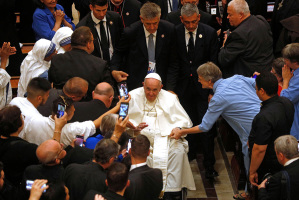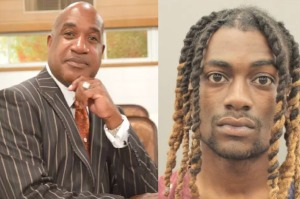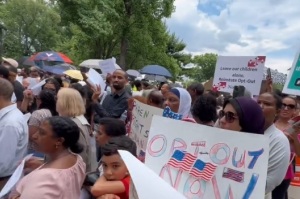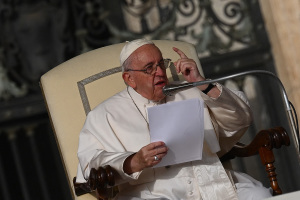Defense of Marriage Act Unconstitutional, Says Bankruptcy Judge
In a rare and far-reaching legal decision, the U.S. Bankruptcy Court for the Central District of California has declared the 1996 Defense of Marriage act unconstitutional.
U.S. Bankruptcy Judge Thomas Donovan issued the decision Monday while handling a joint bankruptcy case filed by Gene Balas and Carolos Morales, a same-sex couple in California. The judge’s ruling is the first to address the constitutionality of the Defense of Marriage Act, also known as DOMA, since U.S. Atty. Gen. Eric Holder announced in February the Obama administration would no longer defend the law in court, saying it was “discriminatory.”
Balas and Morales, two legally married men, asked the court to dismiss the Chapter 13 petition, citing DOMA and the fact that it restricts federal benefits like joint bankruptcy filings to marriages between a man and a woman. The judge ruled the law violated the Constitution’s equal protection guarantee.
A ruling last July by U.S. District Judge Joseph Tauro in Massachusetts, dealt with the law only as it impacts Massachusetts’s residents.
The United States Trustee moved to dismiss the case because Balas and Morales, who legally married along with 18,000 other same-sex couples prior to California passing a ban on gay marriage in 2008, are both men.
Monday’s ruling by July Donovan was specific to the California case. Donovan’s 26-page ruling went far beyond the bankruptcy issue by citing civil rights cases over the last 50 years.
David Neale, a co-managing partner of the Los Angeles bankruptcy firm Levene, Neale, Bender, Yoo & Brill told LAW.com the ruling got the attention of the legal community.
“Having a judge make a constitutionality ruling in a bankruptcy case is not that routine,” Neale said.
In issuing his ruling, Judge Donovan denied the motion and ruled that DOMA – which defines “spouse” under federal law as “a person of opposite sex who is a husband or a wife” – violates the couple’s equal protection rights under the due process cause of the Fifth Amendment.
In a strong show of support, 19 other judges on the 24-member court signed the ruling.
“I read it and it resonated with me,” Judge Catherine Bauer told LAW.com. “I thought it was an important case given the economic climate. There are a lot of married couples out there who are same gender who need to file for bankruptcy.”
Bruce Hausknecht, Judicial Analyst for Citizen Link, which is part of Focus on the Family, said having 20 judges sign an opinion is unheard of.
“The fact that 19 other judges signed onto the decision appears to be more of a lobbying effort than one of legal support,” said Hausknecht.
William C. Duncan, of The Marriage Law Foundation, is recognized as one of the nation’s foremost authorities on marriage cases. He described the case as really “radical” and said an appeal would be sent to the U.S. District Court in California and most likely reach the Ninth Circuit Court of Appeals in the future.
“What supporters of the case are aiming for is to get the case in front of the U.S. Supreme Court,” said Duncan. “But I just don’t see the Supreme Court overturning DOMA.”





























